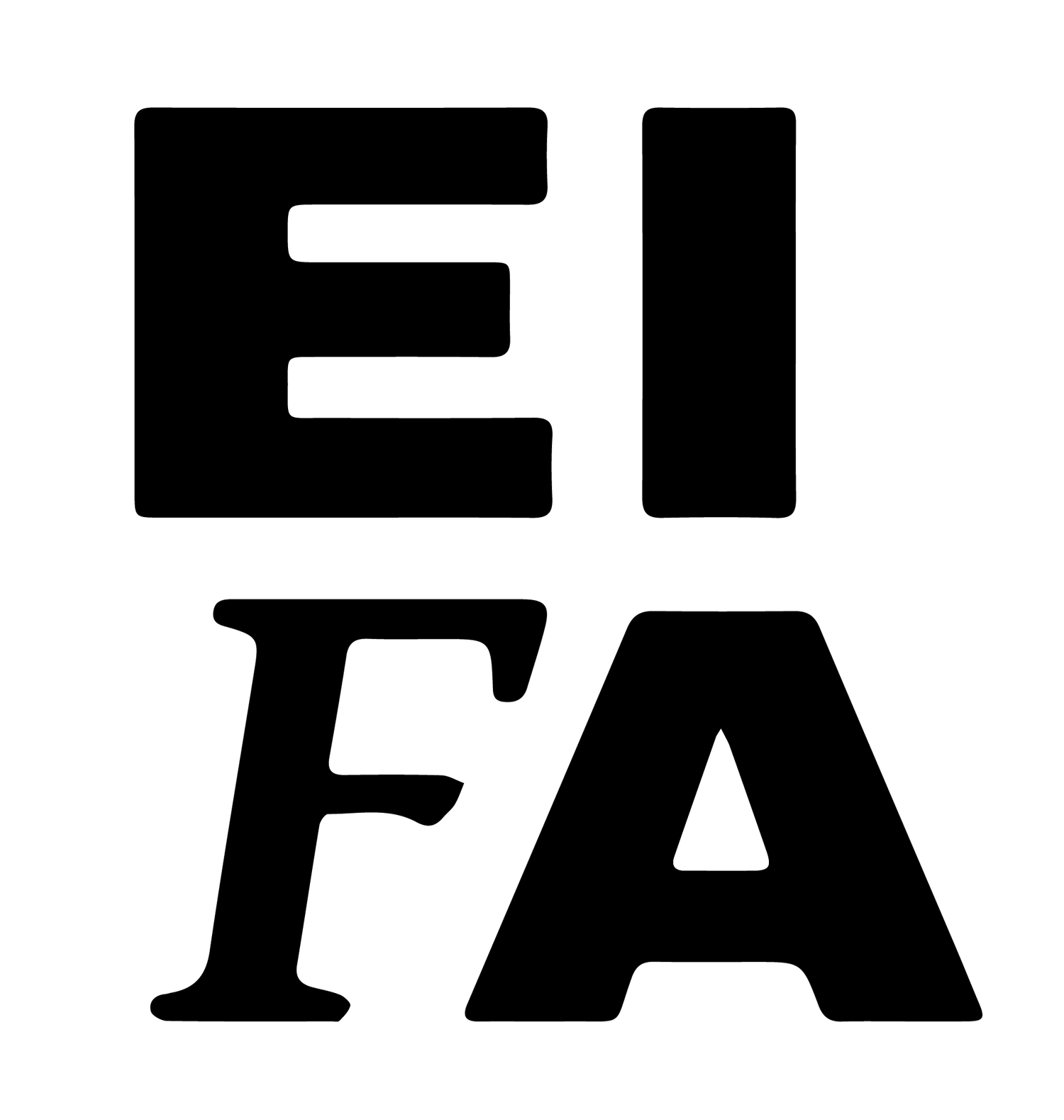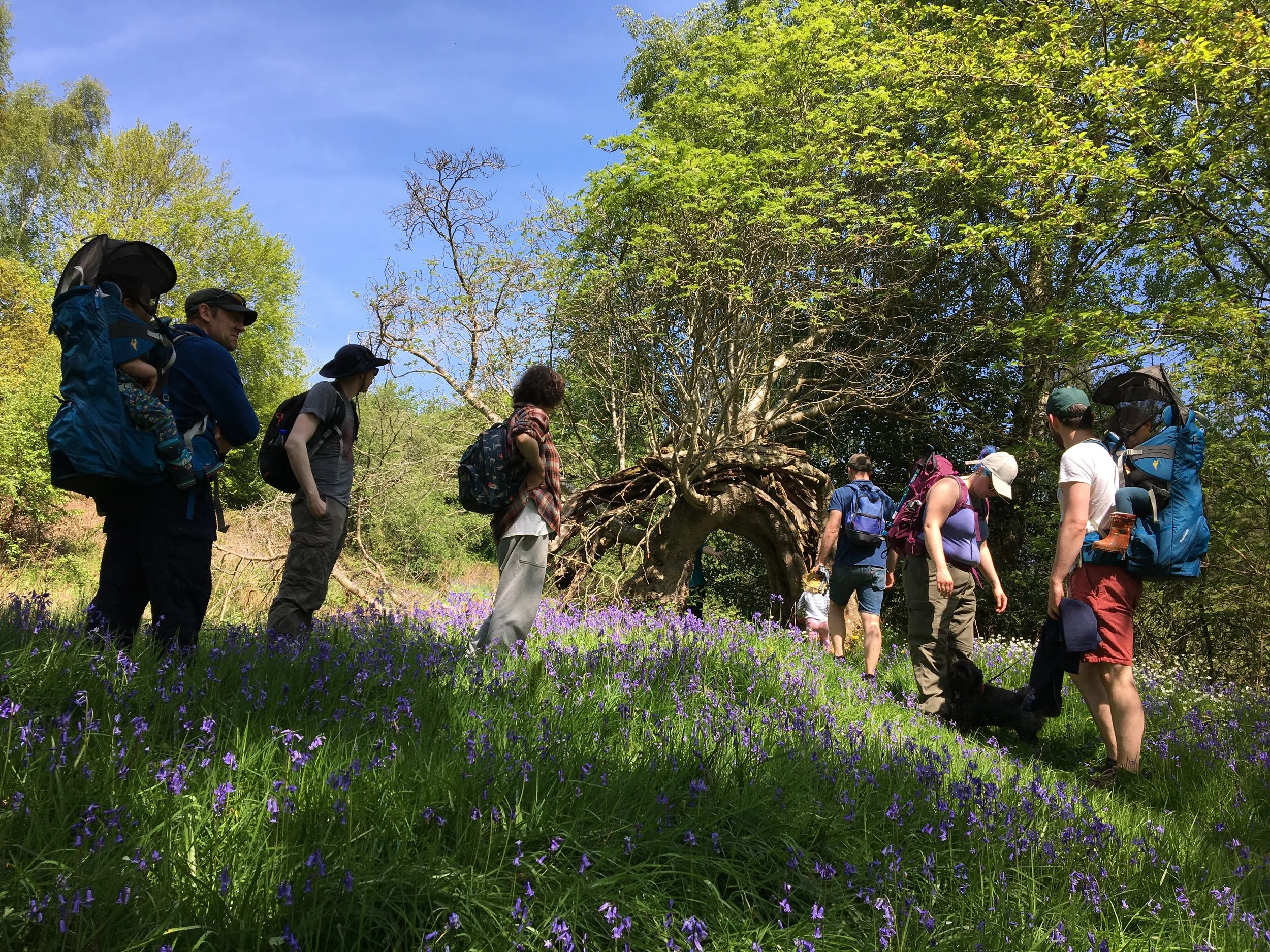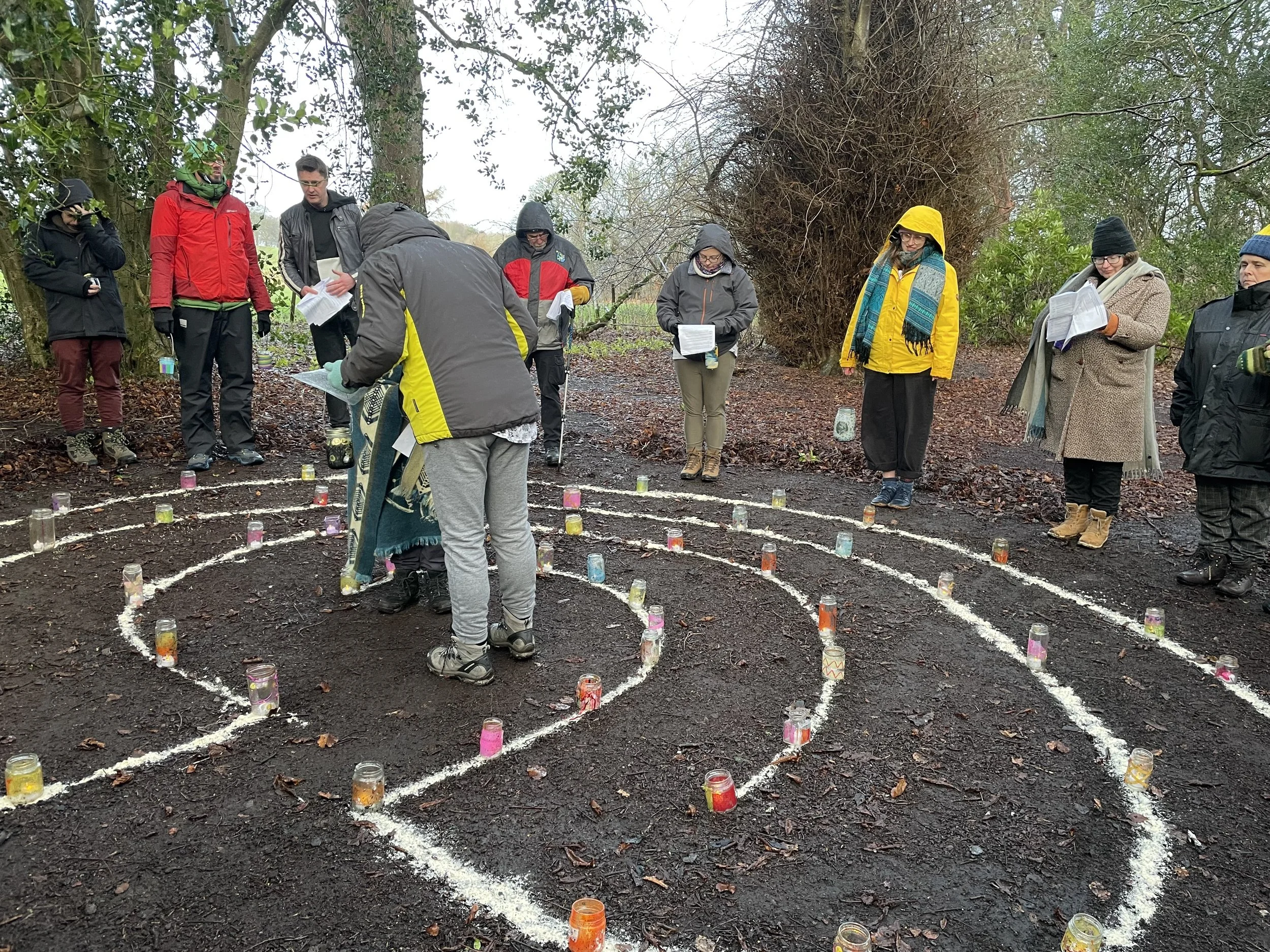Elder & Gorse Druid Grove was founded in 2019 as a non-hierarchical Pagan fellowship. The group’s name came from the stunning yellow blaze of flowering gorse that appears across Arthur’s Seat for a few weeks every year, and from the elder that grows prolifically in the countryside hedgerows around Midlothian. In the Ogham tree alphabet, gorse (Onn) is associated with wild places and provides a protective space for nesting birds and their young, as well as important food for bees early in the year when there are few other flowers. Elder (Ruis) is also a protector that is associated with wisdom and generosity, and is known for its many healing properties. This symbolism has provided fertile associations for the community as it has grown.
Elder & Gorse serves the whole of the greater Edinburgh area, and also has members that come from as far away as Glasgow, Fife, and Carlisle. In the early days of the Grove, members met at Ravelston Woods in the Craigleith area of the city, and after the pandemic the group moved to Roslin Glen Country Park, where they celebrate the eight festivals in the Pagan Wheel of the Year.
The Grove endeavours to be as accessible and inclusive as possible and is open to all. It is also family-friendly. Founded on the idea that ‘we are all teachers and all learners’, members are mentored to write and lead the seasonal ceremonies, and can take responsibility for organising workshops and outings. Druidry has no sacred texts, but many Druids would say that a core part of their practice is studying ‘the book of nature’. To this end, Druids spend a lot of time outdoors getting to know the land where they live, and as part of this Elder & Gorse’s ceremonies take place outside year-round. They also do outings to sacred sites, foraging and tree identification walks, and other activities across Edinburgh and the Lothians.
Like Jean Fowler, Dr Emily Porth, the founder of the community, has observed changes in attitudes to Paganism: “I'd like to think, after the ‘Satanic Panic’ of the ‘80s and ‘90s, that people are more open-minded and less suspicious of those who identify as Pagan. Personally, whenever I’ve mentioned it, people are mostly just curious, and they want to ask questions about it, which I'm happy to answer.”
A central part of countering any residual negativity is the community’s commitment to be as open, accessible and inclusive as possible, something that Emily is keen to encourage: “I always wanted to be really transparent about the type of community we offer. I wanted everybody to feel comfortable. Practicing outdoors in a beautiful community woodland that’s accessible by bus from the city is a really nice way to facilitate that openness. We meet in a pub first and then walk into Roslin Glen together. People can leave immediately afterwards if they want to, or they can come back to the pub with us to socialise or go for a walk. We also have a very active WhatsApp group, which has been important in building relationships between members and nurturing this community.”
“Equally, being outside and being visible is really important, partly because I want people to know that we're here, we exist, and we're nothing to be scared of. We hold our rituals outdoors all year to connect with the land in every season. People see us and are always a bit surprised, thinking ‘what's happening?’, when they come across us in the woods. We get lots of dogs running past (sometimes trying to take food off the altar!). Sometimes people stop and watch, and that's cool. If someone is interested in joining us for a ceremony or joining the group, it's just about being respectful and we’re open to anyone who shares our values.”
“For me, the community aspect of it is really important, both in terms of feeling like I'm not alone, but also that there are other people I have that shared belief with. There’s something really powerful about practicing in a way that says: ‘we're here’.”




